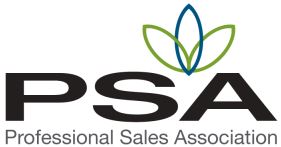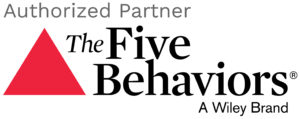Hiring salespeople from your competition may seem like a great idea, but there are many drawbacks if this is your organization’s hiring strategy.
Wouldn’t it be great if we could plant a few seeds in the ground, fertilize them, water them and a great salesperson would grow right before our very eyes? This is truly a flight of the imagination, but it is a plan often followed by business owners and sales management in their pursuit to find great sales talent. Instead of growing their own, they try to steal from their competitors. Why not? They often think that their competitor is much better at growing a sales organization than they are. They will grab some sales talent from their competitor’s sales team and enjoy great sales success.
When do you think your competition begin building a better sales organization than yours?
Before you try to pick what you think are top performing salespeople from your competitors, consider these five caveats when attempting to hire your competitor’s salespeople.
Caveat #1. “Hiring your competitor’s salesperson will have him/her hitting the ground running with no training.” Some of the attraction of hiring from your competitors’ sales team is utter indolence. The thinking is, hire a salesperson from the competitor and generate instant revenue. You won’t have to train them; they already know everything. To say the least, this is flawed thinking. It is important to remember that salespeople will always need training and development regardless of who they sold for previously.
Every once in a while, you will get lucky and hire a rainmaker. More times than not, this approach is a formula for a making a bad hiring decision. Here’s something to think about. What level of salesperson do you actually think are available from your competitors? Seldom is it their top performers. Most times it’s the bottom 20% that your competitor is probably very happy to see leave.
Caveat #2. “Our industry is so involved that we have to hire salespeople from within it.” How true can this be? No salesperson was born mastering your industry, not even you. You were taught it and learned it like everyone else. If you honestly feel that industry experience is the uppermost requirement, be prepared for another major challenge. There are only so many people in your industry and very few that you will consider hiring. At some point, your talent pool will dry up.
Salespeople need to have a particular level of knowledge to successfully sell in a given industry. Your goal is to determine what they need to know to be effective and develop training tools to get them up to speed promptly. Identify resources within your organization that will help them with their questions. Test their knowledge retention along the way to make sure they are getting it.
Caveat #3. “They’re going to bring a big book of business to our organization.” Before you buy into this fantasy, consider these arguments. First, despite what they tell you, it is very difficult to actually move clients. The hassle of change is not one that is easily addressed with clients. It is uncommon to find a salesperson that is so influential that he/she can overcome this dilemma.
It is important to note that the salesperson doesn’t own the clients; their employer does. While most non-competes don’t hold up in court, client list protection does. And, you can put your organization at risk in this tricky situation. Do you actually want to have that sticky situation?
Don’t think for a minute that the salesperson you hire today will retire with your organization. They will leave you some day, just like they left their former employer. Think about your salesperson attempting to take your clients with them when they go. It doesn’t feel very ethical, does it? And, it’s the wrong reasoning to use when hiring a salesperson.
Caveat #4. “We’re a smaller firm and we could surely use a salesperson that comes from a large competitor.” This argument can be true if your organization and your large competitor are identical twins. A match between your company and the candidate is necessary to put together a long-lasting sales marriage.
The problem with the above caveat is that it assumes there is a complete sales culture match. Every sales organization is different, even within the same industry. Your large competitor may have lots of sales support for prospecting and presentations, while your company places the entire responsibility on the salesperson. The salesperson at your competitor may have great name recognition in the marketplace while you do not. Accordingly, a different skill set will be needed to get in the door with prospects. The list goes on and on.
The key is to develop a profile of your ideal sales candidate with the required and desired attributes; then recruit, interview and use validated assessments to ensure you are hiring the best qualified candidates.
Caveat #5. “Since they have been in our industry, they are enthusiastic about it, and enthusiasm sells.” Without a doubt enthusiasm sells, but it’s a wrong assumption that these salespeople come to your organization with enthusiasm. Salespeople who bounce from organization to organization in an industry become “run of the mill salespeople.”
Years ago, I had a salesperson on my team who had sold for several of our competitors before we liberated him. I made sales call with him, and the calls were interesting to say the least. He could have had any of his former employer’s business cards in his hand, or ours for that matter, and everything he said would have been accurate. The problem, with him was that there was no enthusiasm for anything in his presentations. It was all generic information that failed to trigger any excitement in the prospect.
The key is develop a profile of your ideal sales candidate with the required and desired attributes; then recruit, interview and use validated assessments to ensure you are hiring the best qualified candidates.
These steps will help you find the right sales talent for your team regardless if they worked for your competition or not.
Author: Bill Schult







[…] study: Beyond Selling Value. Amazon – CLICK HERE -Scott: BLOG: Think Twice Before You Hire Your Competitor’s Salespeople -Complete the form below to enter the FREE Book Drawing. Thank you! -Buying Steve Kloyda’s […]